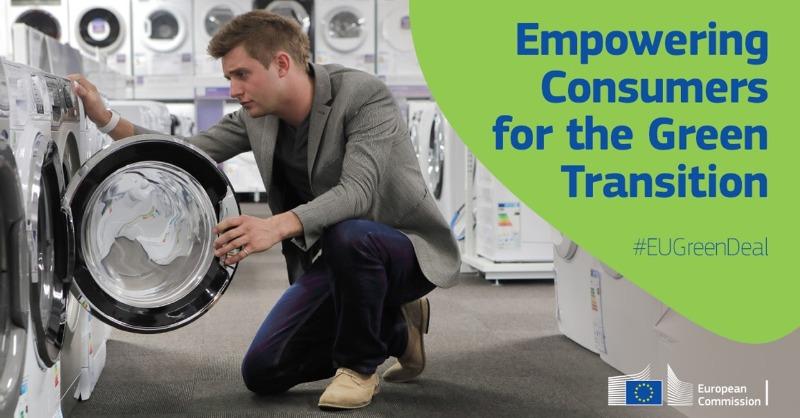
Consumers will have a right to know how long a product is designed to last for and how, if at all, it can be repaired. In addition, the rules will strengthen consumer protection against untrustworthy or false environmental claims, banning ‘greenwashing' and practices misleading consumers about the durability of a product.
Vice-President for Values and Transparency, Věra Jourová, said: “We are supporting consumers who increasingly want to choose products that last longer and can be repaired. We must ensure that their commitment is not hampered by misleading information. We are giving them strong new tools to make informed choices and increase sustainability of the products and our economy with this proposal.”
Commissioner for Justice, Didier Reynders, added: “If we do not start consuming more sustainably, we will not achieve our European Green Deal goals - it is as simple as that. While most consumers are willing to contribute, we have also seen an increase in ‘greenwashing' and early obsolescence practices. To become the real actors of the green transition, consumers must have a right to information to make sustainable choices. They must also be protected against unfair commercial practices which abuse their interest in buying green.”
A new right for information on the durability and reparability of products
The Commission is proposing to amend the Consumer Rights Directive to oblige traders to provide consumers with information on products' durability and reparability:
- Durability: Consumers must be informed about the guaranteed durability of products. If the producer of a consumer good offers a commercial guarantee of durability of more than two years, the seller must provide this information to the consumer. For energy-using goods, the seller must also inform consumers when no information on a commercial guarantee of durability was provided by the producer.
- Repairs and updates: The seller must also provide relevant information on repairs, such as the reparability score (where applicable), or other relevant repair information made available by the producer such as the availability of spare parts or a repair manual. For smart devices and digital content and services, the consumer must be also informed about software updates provided by the producer.
Producers and sellers will decide on the most appropriate way to provide this information to the consumer, be it on the packaging or in the product description on the website. In any case, it must be provided before the purchase and in a clear and comprehensible manner.
A ban on greenwashing and planned obsolescence
The Commission is also proposing several amendments to the Unfair Commercial Practices Directive (UCPD). First, the list of product characteristics about which a trader cannot mislead consumers is expanded to cover the environmental or social impact, as well as the durability and reparability. Then, it also adds new practices that are considered misleading after a case-by-case assessment, such as making an environmental claimrelated to future environmental performance without clear, objective and verifiable commitments and targets, and without an independent monitoring system.
Finally, it amends the UCPD by adding new practices to the existing list of prohibited unfair commercial practices, the so-called ‘black list'. The new practices will include, among others:
- Not informing about features introduced to limit durability, for example, a software which stops or downgrades the functionality of the good after a particular period of time;
- Making generic, vague environmental claims where the excellent environmental performance of the product or trader cannot be demonstrated. Examples of such generic environmental claims are ‘environmentally friendly', ‘eco' or ‘green', which wrongly suggest or create the impression of excellent environmental performance;
- Making an environmental claim about the entire product, when it really concerns only a certain aspect of the product;
- Displaying a voluntary sustainability label which was not based on a third-party verification scheme or established by public authorities;
- Not informing that a good has limited functionality when using consumables, spare parts or accessories not provided by the original producer.
These amendments aim at ensuring legal certainty for traders but also at facilitating enforcement of cases related to greenwashing and early obsolescence of products. Furthermore, by ensuring that environmental claims are fair, consumers will be able to choose products that are genuinely better for the environment than their competitors. This will encourage competition towards more environmentally sustainable products, thus reducing negative impact on the environment.
Next steps
The Commission's proposals will now be discussed by the Council and the European Parliament. Once adopted and transposed into the Member States' national legislation, consumers will be entitled to remedies in the event of breaches, including through the collective redress procedure under the Representative Actions Directive.
For more information
Full European Commission press release
Factsheet on Empowering Consumers for the Green Transition
Webpage on Empowering Consumers for the Green Transition
Details
- Publication date
- 30 March 2022
- Author
- Representation in Ireland
